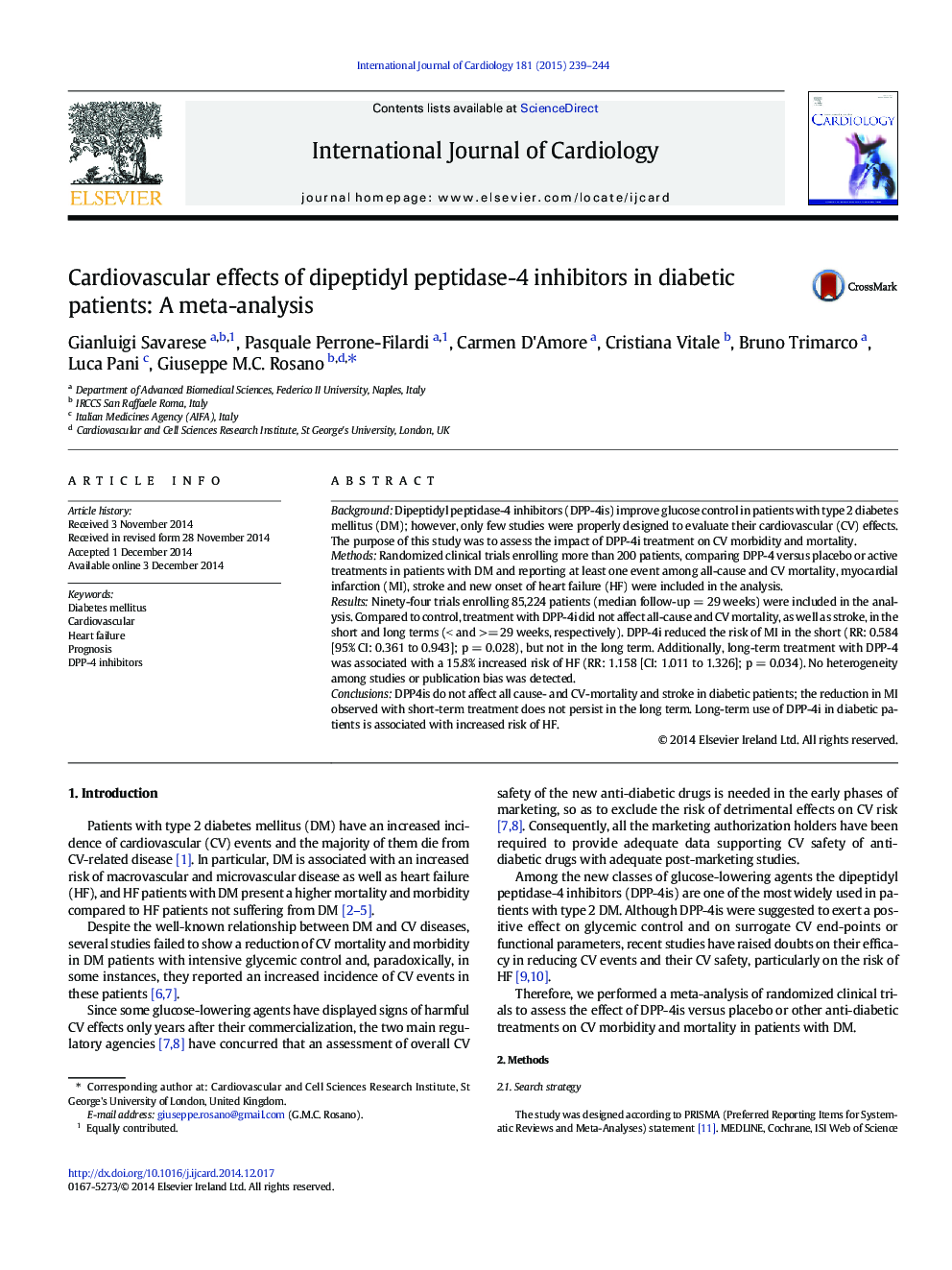| Article ID | Journal | Published Year | Pages | File Type |
|---|---|---|---|---|
| 5968522 | International Journal of Cardiology | 2015 | 6 Pages |
â¢DPP-4i did not affect all-cause and CV mortality and stroke in the long and short terms.â¢DPP-4i reduced the risk of MI in the short but not in the long term.â¢Long term treatment with DPP-4 was associated with a 15.8% increased risk of HF.
BackgroundDipeptidyl peptidase-4 inhibitors (DPP-4is) improve glucose control in patients with type 2 diabetes mellitus (DM); however, only few studies were properly designed to evaluate their cardiovascular (CV) effects. The purpose of this study was to assess the impact of DPP-4i treatment on CV morbidity and mortality.MethodsRandomized clinical trials enrolling more than 200 patients, comparing DPP-4 versus placebo or active treatments in patients with DM and reporting at least one event among all-cause and CV mortality, myocardial infarction (MI), stroke and new onset of heart failure (HF) were included in the analysis.ResultsNinety-four trials enrolling 85,224 patients (median follow-up = 29 weeks) were included in the analysis. Compared to control, treatment with DPP-4i did not affect all-cause and CV mortality, as well as stroke, in the short and long terms (< and >= 29 weeks, respectively). DPP-4i reduced the risk of MI in the short (RR: 0.584 [95% CI: 0.361 to 0.943]; p = 0.028), but not in the long term. Additionally, long-term treatment with DPP-4 was associated with a 15.8% increased risk of HF (RR: 1.158 [CI: 1.011 to 1.326]; p = 0.034). No heterogeneity among studies or publication bias was detected.ConclusionsDPP4is do not affect all cause- and CV-mortality and stroke in diabetic patients; the reduction in MI observed with short-term treatment does not persist in the long term. Long-term use of DPP-4i in diabetic patients is associated with increased risk of HF.
